National incident: Poliovirus found in sewage in north and east London
and live on Freeview channel 276
Health officials have declared a national incident after traces of poliovirus were found in sewage in north and east London.
Public health workers found the virus in sewage samples collected from the London Beckton Sewage Treatment Works.
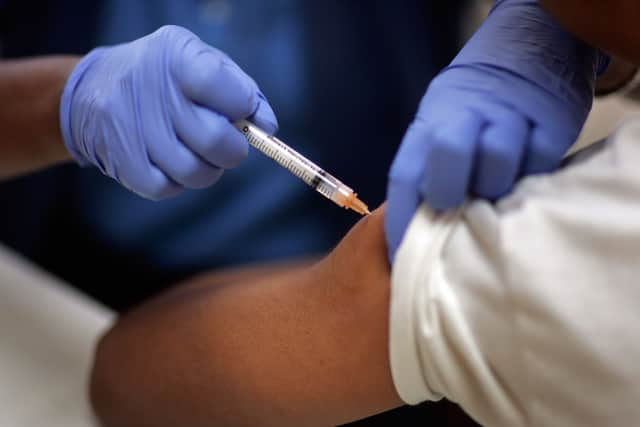

Advertisement
Hide AdAdvertisement
Hide AdIt is believed there has been spread between “closely linked individuals” - and officials are assessing whether any community transmission has taken place.
No cases of polio have been detected so far, but parents are being urged to ensure their children’s vaccines are up to date.
What has happened?
The UK Health Security Agency (UKHSA) announced today, Wednesday, June 22, that “several closely related viruses” were detected in routine waste water surveillance.
Sewage samples were taken between February and May 2022 by the UKHSA and the Medicines & Healthcare products Regulatory Agency (MHRA).
Advertisement
Hide AdAdvertisement
Hide AdThe plant covers a large area of north and east London with a population close to 4m.
An investigation is underway to ensure the public is protected - and risk is thought to be low.
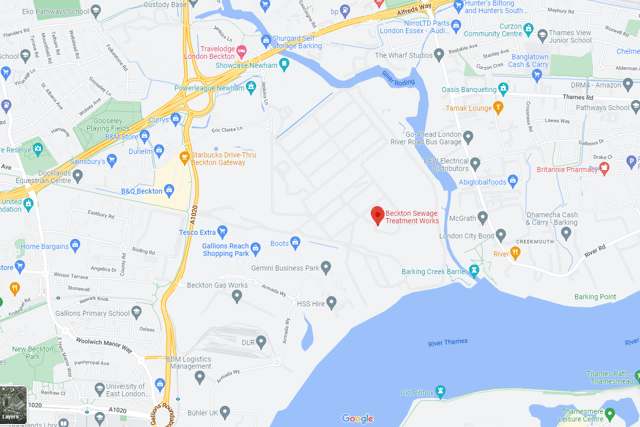

One-off findings of “vaccine-like” polioviruses are usually detected each year in UK sewage samples, and tend to be caused by those vaccinated overseas visiting or returning to Britain.
However, the viruses found over the last few months have continued to evolve.
Advertisement
Hide AdAdvertisement
Hide AdThey are now considered to be “vaccine-derived” poliovirus type two (VDPV2), which - on rare occasions - can cause serious illness, such as paralysis, in people not fully vaccinated.
What are health officials saying?
A UKHSA spokesperson said: “The detection of a VDPV2 suggests it is likely there has been some spread between closely linked individuals in north-east London and that they are now shedding the type two poliovirus strain in their faeces.
“The virus has only been detected in sewage samples and no associated cases of paralysis have been reported but investigations will aim to establish if any community transmission is occurring.”
Wild polio was last contracted in the UK in 1984 and the UK was declared polio-free in 2003.
Advertisement
Hide AdAdvertisement
Hide AdThe public are urged to ensure their polio vaccines are up-to-date, especially parents of young children who may have missed an immunisation opportunity.
How much of a risk is it?
Dr Vanessa Saliba, consultant epidemiologist at UKHSA, said: “Vaccine-derived poliovirus is rare and the risk to the public overall is extremely low.
“It has the potential to spread, particularly in communities where vaccine uptake is lower.
“On rare occasions it can cause paralysis in people who are not fully vaccinated.
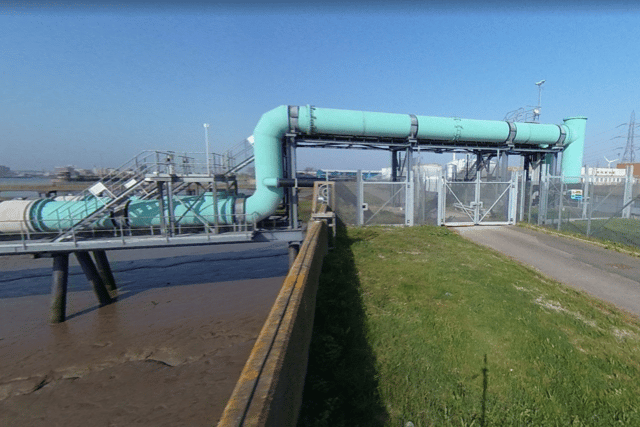

Advertisement
Hide AdAdvertisement
Hide Ad“If you or your child are not up to date with your polio vaccinations it’s important you contact your GP to catch up or if unsure check your red book.
“Most of the UK population will be protected from vaccination in childhood, but in some communities with low vaccine coverage, individuals may remain at risk.
“We are urgently investigating to better understand the extent of this transmission and the NHS has been asked to swiftly report any suspected cases to the UKHSA.
“No cases have been reported or confirmed so far.”
What is the health advice?
Jane Clegg, chief nurse for the NHS in London, said: “The majority of Londoners are fully protected against polio and won’t need to take any further action.
Advertisement
Hide AdAdvertisement
Hide Ad“The NHS will begin reaching out to parents of children aged under five who are not up-to-date with their polio vaccinations to invite them to get protected.
“Meanwhile, parents can check their child’s vaccination status in their red book and people should contact their GP to book a vaccine should they or their child not be fully up-to-date.”
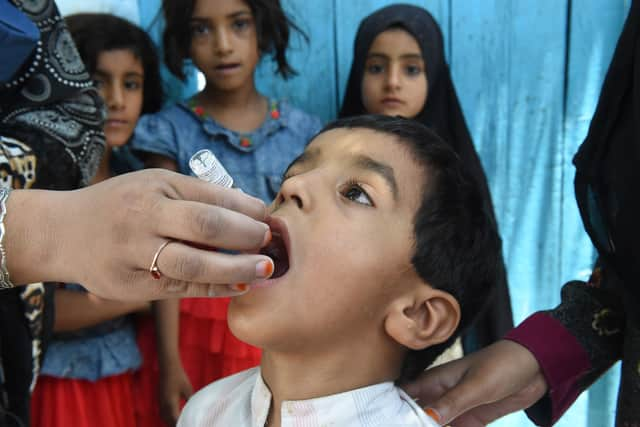

While the UK is considered polio free by the World Health Organization (WHO), vaccine coverage for childhood vaccines has decreased nationally and especially in parts of London.
Wastewater surveillance is being expanded to assess the extent of transmission and identify local areas for targeted action.
Advertisement
Hide AdAdvertisement
Hide AdHealth workers have been alerted so they can promptly investigate and report anyone presenting with symptoms that could be polio, such as paralysis.
Vaccine viruses can spread in under-vaccinated communities, and during the spread the virus can mutate into a “vaccine-derived poliovirus”.
This behaves more like naturally occurring wild polio and may, on rare occasions, lead to cases of paralysis in unvaccinated individuals.
What is polio?
Polio is a rare disabling and life-threatening disease caused by the poliovirus.
Advertisement
Hide AdAdvertisement
Hide AdThe virus spreads easily from person to person mainly via the faecal-oral route.
It can be spread by poor hand hygiene - when an infected person does not properly wash their hands after using the toilet and then touching food/water that is eaten by others.
While it is less commonly spread through coughing and sneezing.
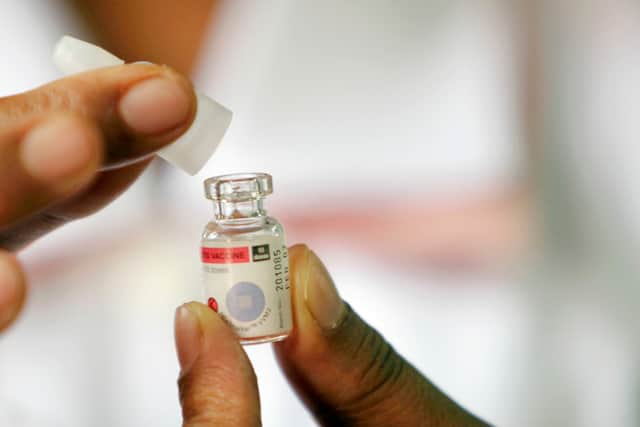

The virus multiplies in the intestine and infected people excrete the virus in their faeces.
Advertisement
Hide AdAdvertisement
Hide AdIt can infect a person’s spinal cord, causing paralysis, or weakness of parts of the body.
Most people with polio won’t have symptoms and will fight off the infection without realising.
A small number of people will experience flu-like illness three to 21 days after being infected.
Symptoms can include:
- High temperature (fever) of 38C (100.4F) or above;
- Sore throat;
- Headache;
- Abdominal (tummy) pain;
- Muscle aching;
- And nausea, or feeling and being sick.
These symptoms will usually pass within about a week without any medical intervention.
When is polio an emergency?
Advertisement
Hide AdAdvertisement
Hide AdIn a few cases, the polio virus attacks the nerves in the spine and base of the brain.
This can cause paralysis, usually in the legs, that develops over hours or days.
If the breathing muscles are affected, it can be life threatening.
This occurs in between 1 in 100 to 1 in 1000 infections.
If you or your child is experiencing unusual symptoms that could be the beginning of paralysis you should always seek medical advice immediately.
Advertisement
Hide AdAdvertisement
Hide AdSymptoms include rapid onset of weakness in a limb which will be flaccid (or floppy).
The weakness most often involves the legs, but sometimes affects the muscles of the head and neck, or breathing.
After paralytic polio, movement will often slowly return over the next few weeks and months but many people are left with persistent problems.
If you are experiencing these symptoms you should consult a health professional immediately.
How do polio vaccines work?
Advertisement
Hide AdAdvertisement
Hide AdThe best way to prevent polio is to make sure you and your child are up to date with your vaccinations.
The vaccine is given as part of a combined jab to babies, toddlers and teenagers as part of the NHS routine childhood vaccination schedule.
It’s given when your child is:
- 8, 12 and 16 weeks old as part of the 6-in-1 vaccine;
- 3 years and 4 months old as part of the 4-in-1 (DTaP/IPV) pre-school booster;
- And 14 years old as part of the 3-in-1 (Td/IPV) teenage booster.
You need to have all of these vaccinations to be fully vaccinated against polio.
If you are not up to date, you can have a polio vaccination at any point for free on the NHS.
You should also get vaccinated even if you’ve had polio before as the vaccine protects against three different types of poliovirus.
For more information, visit: https://www.nhs.uk/conditions/polio/
